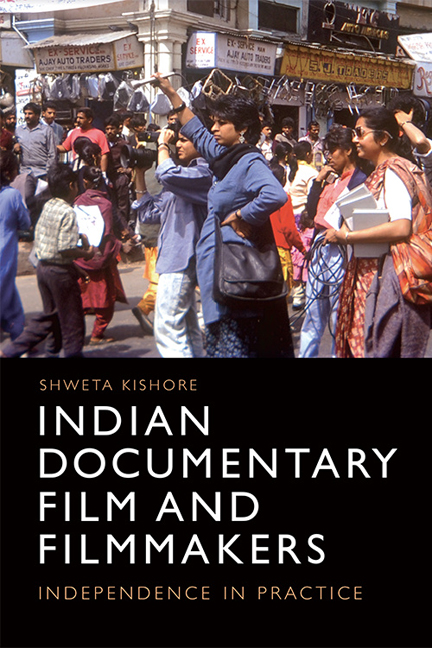5 - People and Documentary
Published online by Cambridge University Press: 24 April 2021
Summary
In December 2015 I watched the private video recordings of Anand Patwardhan's screening tour of Jai Bhim Comrade (2012) in Dalit (ex-untouchable)-dominated settlements of Mumbai including Ramabai Nagar, whose bloody events the film documents. These extraordinary recordings captured a series of enormously emotional encounters consisting of visceral spectator responses that reflected an existential fusion between the screen protagonists and audience members. Embodied expressions of grief stirred by the witnessing of individual suffering erupted alongside lived narratives of trauma and political arousal. The revolutionary music of the Dalit musicians of the Kabir Kala Manch featured in the documentary generated complex embodied affect of pleasure and sorrow. Above all, these post-screening forums made tangible the subjective ways in which spectators derive meaning from films. The corporeal response evoked a terrain that Gaines describes as the production of ‘political mimesis’, an embodied phenomenon that connects subjects and audiences through bodily responses or mimesis (Gaines 1999: 85). Some years earlier, Meghnath, founder of Jharkhand-based film collective Akhra, had noted mimetic audience response to Voices from Baliapal (1988), a documentation of nonviolent protests by 70,000 fishermen and farmers from the coastal state of Odisha:
People in a struggle always identify with their counterparts elsewhere and learn from them very fast … after seeing the film, women of the Auranga dam agitation emulated the experiences of Baliapal and stopped forest department officials from felling the trees. (Meghnath 1997)
In these settings, films seem to exceed their ontology as media objects to not only mediate symbolic solidarity between the on- and off-screen communities but to invoke the formation of a publics produced equally through shared experience and affect.
As major participants in the construction of documentary texts and subsequently documentary publics, documentary participants and spectators have been somewhat marginalised in documentary studies. Viewed through the ‘real vs representation’ debate, spectatorship studies focus on critical textual analysis of documentary's representational systems to draw conclusions about documentary's construction of screen subjects, narrative address and forms of spectator subjectification. On the other hand, the documentary participant is largely a site of anxiety, viewed through the discourse of documentary image ethics and its construction of moral obligations between filmmaker and film participant (Gross, Katz and Ruby 1991).
- Type
- Chapter
- Information
- Indian Documentary Film and FilmmakersIndependence in Practice, pp. 133 - 161Publisher: Edinburgh University PressPrint publication year: 2018



